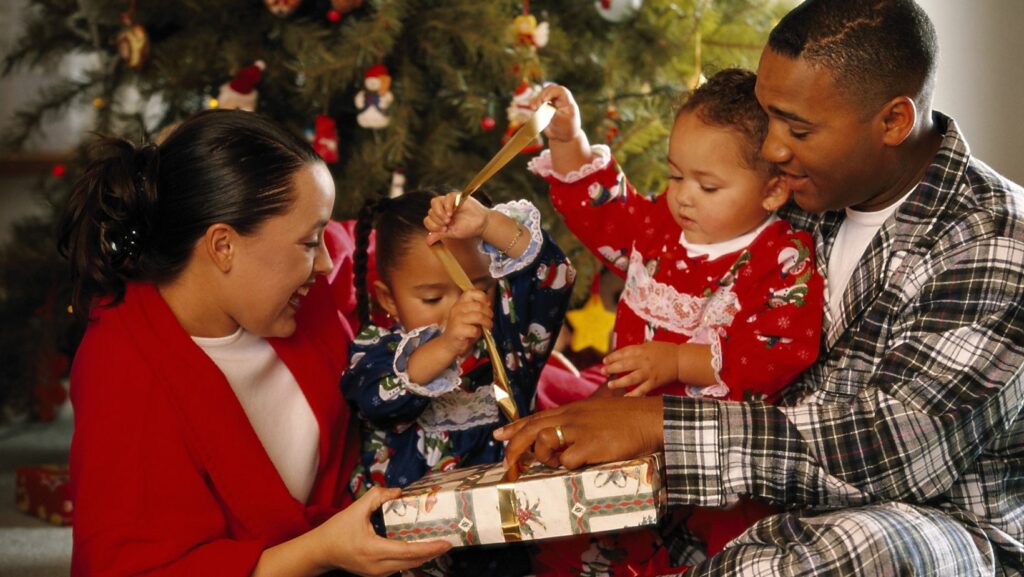In an era where sustainability’s more than just a buzzword, recycled gifts are making their mark. They’re not just eco-friendly; they’re unique, thoughtful, and a testament to one’s commitment towards a greener planet. This article delves into the world of recycled gifts, exploring their charm and significance.
From repurposed vintage pieces to handmade crafts, recycled gifts come in all shapes and sizes. They’re the perfect blend of creativity and responsibility, proving that one doesn’t need to compromise on style to make ethical choices.
Stay tuned as we unwrap the potential of recycled gifts, a trend that’s redefining the gifting culture. It’s about time we reconsider what we give, how we give, and the impact it makes. After all, isn’t it beautiful when a gift brings joy not just to the receiver, but also contributes to the well-being of our planet?
Recycled Gifts
 Riding the wave of eco-conscious consumerism, recycled gifts have carved out a significant niche in the marketplace. This section explores the factors contributing to this rising trend, delve into the positive environmental impacts of recycled gifts.
Riding the wave of eco-conscious consumerism, recycled gifts have carved out a significant niche in the marketplace. This section explores the factors contributing to this rising trend, delve into the positive environmental impacts of recycled gifts.
Recycled gifts symbolize a shift towards conscientious consumerism. As individuals become more eco-aware, the demand for recycled gifts escalates. People appreciate the innovative and attractive designs offered by products made from repurposed materials. Simultaneously, gifting these items reflects a commitment to sustainability. Furthermore, recycled gifts are often unique, adding a distinct charm which mass-produced items typically lack. For instance, a purse made from recycled coffee sachets or a lamp crafted from an old wine bottle stand as singular and attention-getting gifts.
Choosing recycled gifts over traditionally-produced items reduces environmental impact. It’s estimated that recycled products can save up to 95% of the energy required for manufacturing raw materials. Diverting items from landfills, recycling not only conserves resources but also minimizes pollution. For example, spinning old plastic bottles into fabric reduces the demand for petroleum, a key ingredient in making virgin plastic.
Types of Recycled Gifts
 Diving deeper into the world of recycled gifts reveals a broad spectrum of options. This portion of the article delves into two specific types: those made from upcycled materials and gifts crafted from repurposed items. Upcycling, at times synonymous with recycling, involves transforming waste materials or obsolete products into something of higher quality or value. From stylish accessories to noteworthy home decor, upcycled materials serve as the building blocks of a wide array of gifts. For instance, fashion aficionados may appreciate a necklace crafted from driftwood, a pair of earrings made from bike chains, or a wallet sewn from reclaimed leather. For home enthusiasts, bottle lamps, mosaic trays from pottery shards, or cushions made from old clothing could be the perfect gift. These gifts made from upcycled materials effectively combine environmental responsibility with creativity and aesthetics.
Diving deeper into the world of recycled gifts reveals a broad spectrum of options. This portion of the article delves into two specific types: those made from upcycled materials and gifts crafted from repurposed items. Upcycling, at times synonymous with recycling, involves transforming waste materials or obsolete products into something of higher quality or value. From stylish accessories to noteworthy home decor, upcycled materials serve as the building blocks of a wide array of gifts. For instance, fashion aficionados may appreciate a necklace crafted from driftwood, a pair of earrings made from bike chains, or a wallet sewn from reclaimed leather. For home enthusiasts, bottle lamps, mosaic trays from pottery shards, or cushions made from old clothing could be the perfect gift. These gifts made from upcycled materials effectively combine environmental responsibility with creativity and aesthetics.
Choosing the Right Recycled Gifts
 When in the market for recycled gifts, certain key factors can enhance the buying experience, ensuring selection of genuine and sustainable products.
When in the market for recycled gifts, certain key factors can enhance the buying experience, ensuring selection of genuine and sustainable products.
When buying recycled gifts, value gravitates towards sustainability and originality. First, consider the materials used in the product. For instance, recycled gifts often result from repurposing used items, such as converting old records into decorative bowls, or upcycling waste materials into high-quality products such as glass bottles morphed into stylish candle holders. Secondly, consider the significance or symbolic value of the gift. A skilled artisan can turn discarded materials into treasures that carry functional and symbolic significance, symbolizing commitment to environmental sustainability.
Different brands’ sustainability practices can also carry weight in the decision-making process. Brands that uphold responsible manufacturing processes, including low-energy production methods and minimal waste generation, offer added value. Lastly, consider the design artistic, and functional elements of the product. Well-crafted, aesthetically pleasing, and useful products can reflect well on the gift giver, in addition to promoting sustainability.
Verification of the sustainability of recycled gifts happens through a careful examination of the product and its manufacturer. For instance, one should check for certification labels indicating that stringent sustainability standards were met during production. Examples of such labels include Forest Stewardship Council (FSC) for items made from wood or the Soil Association Organic Standard for textile products.



